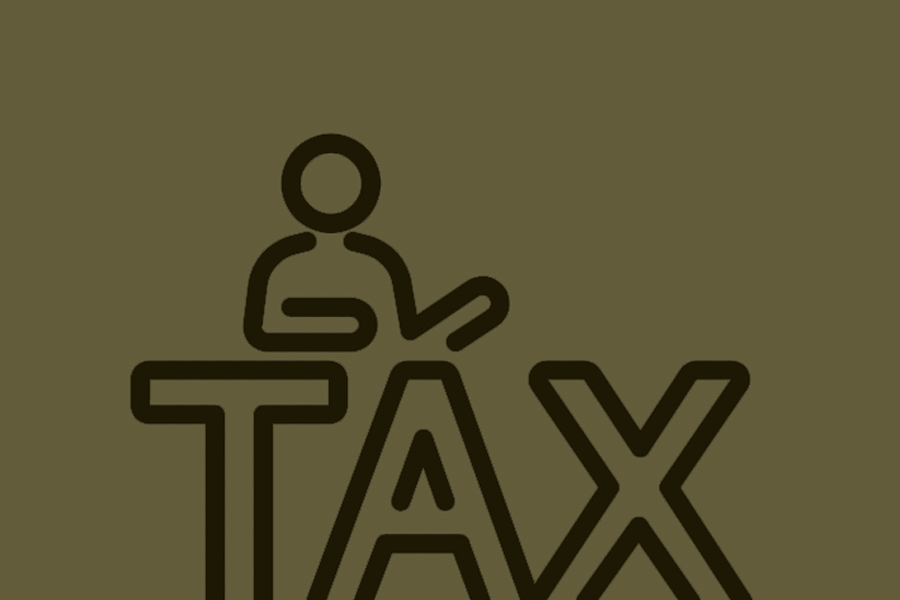
Published :
Updated :

A higher indirect tax burden is significantly associated with a higher poverty rate and it leads to greater income inequality, according to a study.
Currently, Bangladesh generates more revenue from indirect sources-constituting over two-thirds of revenue generation and rising income inequality is a growing concern for the country, it noted.
"Each one percentage point increase in the indirect tax burden leads to a 0.42 percentage point rise in poverty," according to the findings.
Cross-country analysis strengthens these findings, indicating a 0.1 percentage point increase in income inequality for each one percentage point surge in the indirect tax burden.
Furthermore, a 1.0 percentage point rise in income correlates with a substantial 0.084 percentage point decrease in poverty, according to the study titled 'Assessing the Impact of Indirect Taxation on Poverty and Inequality: A Pseudo-Panel Data Analysis on Bangladesh and Global Insights from Cross-Country Panel Regressions'.
The findings were disclosed at a seminar jointly organized by Research and Policy Integration for Development (RAPID) and International Growth Centre (IGC) held on Saturday in a city hotel.
It also showed that over a decade, poverty decreased by an average of 51 per cent, from 50 per cent in 2000 to 24 per cent in 2016.
However, income inequality persists, with a 2.0 to 7.0 per cent rise in the indirect tax burden for poor households, said RAPID research director Dr Md Deen Islam while presenting the findings.
The study emphasised the imperative to globally reduce reliance on indirect taxes.
Interestingly, the analysis suggests a potential but weak association between higher indirect tax shares and slower GDP growth, underlining the intricate connections between fiscal policies, economic development, and inequality dynamics.
The escalating income inequality in Bangladesh, evidenced by a rising Gini coefficient from 0.448 in 2010 to 0.499 in 2022, underscored a significant socio-economic challenge.
The paper emphasised the crucial role of progressive taxation in addressing this issue and bolstering government revenue. Currently, with almost two-thirds of revenue derived from indirect sources, particularly regressive taxes like value-added tax (VAT), there are growing concerns about their impact on poverty and inequality.
Weak direct taxation and its relatively low contribution to total tax revenue limit public expenditure on essential services, including health, education, and social protection programmes, contributing to the rising inequality in the country.
The study advocated a balance between direct and indirect taxes to achieve a more equitable society.
The findings underscore the urgency of re-evaluating the taxation framework in Bangladesh, suggesting a need for a more equitable distribution of the tax burden to mitigate, rather than exacerbate, poverty incidence.
Bangladesh faces historical challenges in tax revenue generation, with a tax-GDP ratio of only 8.0 per cent, significantly lower than comparable countries like China, India, and Japan.
The tax structure heavily relies on indirect taxation, constituting over two-thirds of revenue generation. Although direct tax collection has increased over the years, the direct tax-GDP ratio remains low at just 2.5 per cent.
The government should embark on a phased tax reform initiative spanning 10-15 years, prioritising broadening the tax base and modernising tax administration, it recommended.
A well-structured plan, incorporating short, medium, and long-term strategies, will be instrumental in gradually achieving this objective, it suggested.
To ensure transparency and fairness, a comprehensive cost-benefit analysis should precede any decision to grant tax exemptions, it recommended adding this would help eliminate random and unexamined exemptions, ensuring that fiscal incentives align with job creation and economic growth.
To enhance tax compliance, a shift from traditional policing and threats to more user-friendly and automated technology is imperative.
The government should invest in advanced systems that not only notify taxpayers but also provide regular reminders for return filing.
Additionally, adopting a service-providing attitude in tax administration can foster voluntary compliance. The focus should be on educating and assisting taxpayers rather than relying solely on enforcement measures.
An expansion of the tax net is crucial to collect more revenue from direct sources. The adoption of innovative technologies can facilitate this expansion, making it easier for individuals and businesses to comply with tax regulations.
These measures collectively contribute to building a fair, transparent, and efficient tax system that aligns with economic growth objectives while mitigating income inequality.
Moderated by RAPID chairman Dr MA Razzaque, MM Fazlul Hoque member of NBR, also spoke, among others.
munni_fe@yahoo.com


 For all latest news, follow The Financial Express Google News channel.
For all latest news, follow The Financial Express Google News channel.